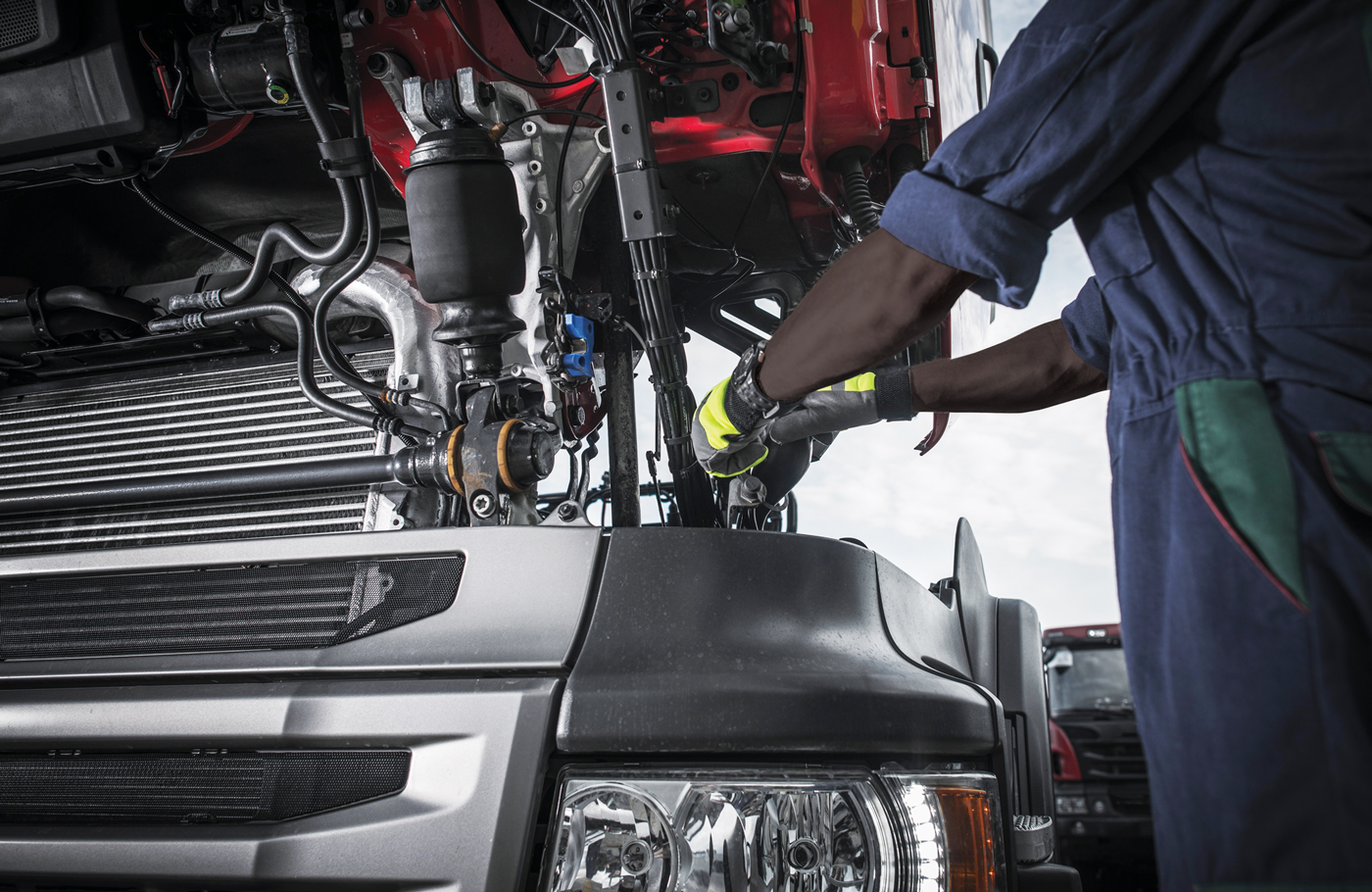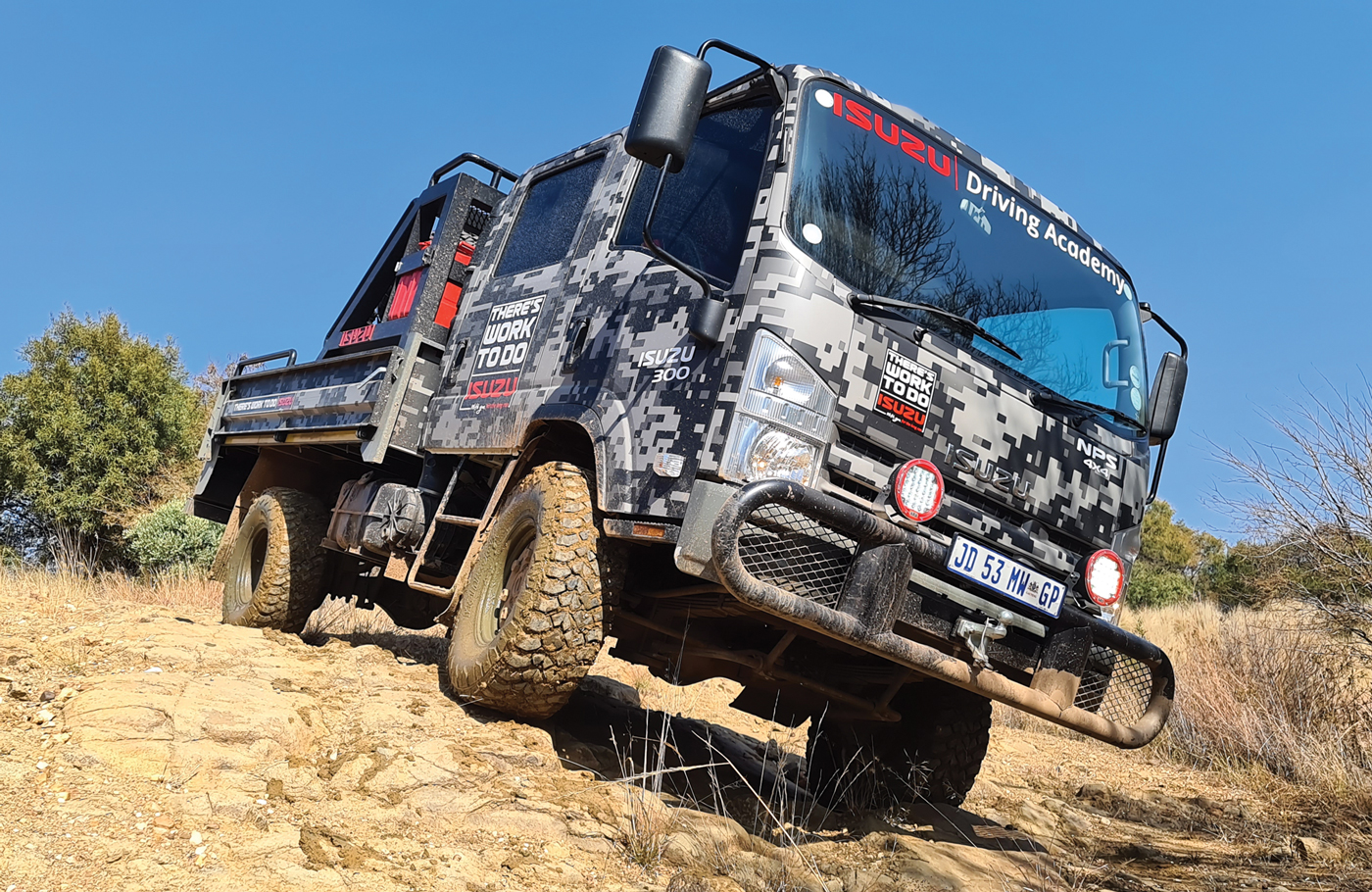Guidelines for competition are here: what next?
Guidelines for competition are here: what next?
The Guidelines for Competition in the South African Automotive Aftermarket were implemented on July 1. What are the implications for the transport industry? CHARLEEN CLARKE probes this controversial topic…
For several years now, the Right to Repair campaign has been in the news. More recently, the Guidelines for Competition in the South African Automotive Aftermarket were released. Much has been said and written about these guidelines within the motoring fraternity. However, they also have significant connotations for the commercial vehicle (CV) industry – because they’re equally relevant to companies that sell, buy and use bakkies, vans, trucks, buses and coaches.
Bearing this in mind, we sat down (virtually, of course) with representatives of six of the leading suppliers of CVs, namely Daimler Trucks & Buses Southern Africa, Everstar Industries, Hino South Africa, Isuzu Motors South Africa, Scania Southern Africa and UD Trucks Southern Africa. We asked them all about the various stipulations in the guidelines, and how they will impact original equipment manufacturers (OEMs), dealers and operators. As you will see, five of the companies answered our individual questions. Isuzu opted to issue a standalone statement, which you can read on page 20.
FOCUS: As a result of the guidelines, do you see truck operators going to Independent Service Providers (ISPs) instead of OEM-approved dealers in the future?
Thabo Moloi, head of customer service and parts at Daimler Trucks & Buses Southern Africa (DTBSA): We anticipate that some of the customers will explore the option of having their vehicles repaired and maintained by ISPs during the warranty. We, however, urge customers who opt to have their vehicles repaired by an ISP to ensure that the ISPs adhere to their obligations in terms of the guidelines. They have to request that the ISPs disclose to consumers in clear and explicit terms the risk of damage that could arise from the ISP’s work, including consequential damage to the vehicle, which may potentially void certain obligations of the OEM in terms of the warranty.
Alan Parry, general manager: human resources and admin at Everstar Industries: That may well happen for other brands. But with us probably not, as we have the keenest pricing in terms of parts for our trucks (as confirmed by a recent market survey), which includes labour/service rate per hour.
Ernie Trautmann, vice president of Hino South Africa: Customers and operators are free to take their vehicles for service and repairs to ISPs. When doing so, the customer must be careful not to compromise the safety of the vehicle. The guidelines make reference to the point that – in some instances – the warranty may be voided partially or completely depending on the type of service or repair conducted. For instance, it stipulates that ISPs shall disclose to consumers, in clear and explicit terms, the risk of damage that could arise from the ISP’s work, including consequential damage to the motor vehicle. The ISP must make customers aware of the impact on the warranty of the vehicle for the work that is conducted by them. Plus, all service and repairs conducted by an ISP are for the customer’s account.
Mark Erasmus, general manager: sales and export at Scania Southern Africa: There will be some fall-off of customers. However, the financial cost of setting up a complete dealer with all the correct tools and for multiple brands is probably not practical on a large scale.
Filip Van den Heede, managing director of UD Trucks Southern Africa (UDSA): Inasmuch as the guidelines give truck operators the option to utilise ISPs, as an OEM with nearly 40 years of experience in the industry, we understand that a customer’s choice relies on various factors, including longstanding relationships, a level of service that maximises uptime, safety, accountability as well as customer lifetime value.
In future, OEMs must approve any motor-body repairer applicant that meets their standards and specifications. And OEMs may not enter into exclusive arrangements, either with one or more approved motor-body repairers, for effecting repairs on an OEM’s motor vehicles within a designated geographic area. How will this affect transport operators? Will they have a far greater choice of repairers in future?
Moloi (Daimler): We expect that the provision in the guidelines will promote greater participation and competition, leading to a wider choice of approved authorised motor-body repairers.
Parry (Everstar): Yes, we will, but if OEMs need to approve those repairers, we are still assured that standards are maintained. All our dealer agreements are non-exclusive, and have been so since 2013, be that for service dealers and/or our full dealers. We are one of the few OEMs that is well geared to manage the same with any new/potential ISP.
Trautmann (Hino): Auto body repairer approval is a requirement of the motor vehicle insurers, and they are responsible for this function – therefore this section applies to the vehicle insurance industry. This is also mentioned in the guidelines in section 5.4.3: “The motor-body repairs of consumers who have insurance cover shall be undertaken by an approved motor-body repairer during the in-warranty period, as allocated by an insurer to the consumer.” Toyota South Africa Motors (TSAM) will not be part of the process to approve/accredit or appoint panel beaters for/on behalf of any industry.
Erasmus (Scania): We have been approving repairers for many years in line with the guidelines. Customers already have many repairers to choose from, so there should be no major changes going forward.
Van den Heede (UD): As UDSA does not approve motor-body repairers, we do not foresee that the guideline, in this regard, will affect the way we do business.
In future OEMs must adopt measures to lower financial barriers to entry and promote the participation of Historically Disadvantaged Individuals (HDIs) in the dealership market. How is your company planning to do this practically?
Moloi (Daimler): DTBSA will be adapting dealer selection criteria to promote the participation of HDIs and will lower financial barriers by creating opportunities that require more affordable investments by the applicant.
Parry (Everstar): We already have a number of HDI dealers.
Trautmann (Hino): TSAM has a clear 2S dealer strategy in terms of appointing parts and service dealers. This is done with the support of a fully fledged dealer and does not require the financial stress of operating a new vehicle showroom and its related costs. These applications and appointments will always be done in line with the transformation strategies.
Erasmus (Scania): The most obvious route is through the correct application of the BBBEE by OEMs.
Van den Heede (UD): See the next answer.
From July 1, OEMs are not allowed to impose onerous obligations on prospective dealers. The requirements for approved dealers must be reasonable and have an economic rationale, particularly concerning the size of land, showrooms, furniture, fittings and finishes. Have you had to change your internal policies and processes as a result?
Moloi (Daimler): DTBSA prides itself in offering both premium brand vehicles as well as quality customer service through an authorised dealer network. This has always been achieved by adhering to specific international guidelines and standards as provided by our parent company. We are, however, cognisant of the financial impact of certain investments required by our dealers and will endeavour to create a viable and sustainable dealer network by amendments to certain internal processes and policies.
Parry (Everstar): Our access to entry is relatively easy as our dealer agreements are akin to service-level agreements. The only extra cost the dealer must pay for is a fair portion for signage (reflecting our corporate identity).
Trautmann (Hino): TSAM has not changed any policies or procedures as a result of this. TSAM’s policy and procedures to appoint dealers always catered for such appointments. There is no obligation on OEMs to appoint/accredit or approve ISPs.
Erasmus (Scania): We have already approved interested parties and we are heavily involved with setting up and financially supporting them during the process. We have not changed our processes or policies.
Van den Heede (UD): Every year, we review all dealer investment requirements to ensure that they are realistic and rational. Our investment requirements are focused on the size of the facility to accommodate commercial vehicles, as well as tools and equipment to ensure good workmanship and customer satisfaction. Our minimum investment requirements make provision for ISPs, which include only the most important criteria.
In future, OEMs and/or approved dealers need to make original spare parts available through their sales and distribution networks to ISPs that perform service, maintenance or repair work. How has this impacted your company from a logistics perspective?
Moloi (Daimler): We do not expect a big impact on our current logistics as we already allow ISPs to purchase original spare parts directly from our dealer network.
Parry (Everstar): There is no change to the current procurement and logistics for our dealers, both locally and cross-border.
Trautmann (Hino): Our business has always operated on the model whereby TSAM is the wholesaler of vehicles and parts to our dealer network. The dealer network is the retailer to our customers. ISPs and customers can continue purchasing parts from our dealer network to perform their service and repairs.
Erasmus (Scania): We already supply parts to ISPs through our network.
Van den Heede (UD): UDSA has always supplied ISPs with original spare parts through the dealer network and will continue to do so to ensure the most cost-effective customer solutions.


The guidelines stipulate that OEMs must make available to ISPs the OEM-technical information relating to its motor vehicles, on reasonable terms and conditions, including terms related to usage, confidentiality and fees that are no less favourable to the terms offered to its approved dealers and approved motor-body repairers. Once again, how has this impacted your company?
Moloi (Daimler): We are in the process of creating a digital platform that will allow for easy payment and access by ISPs to certain information and will manually manage the process in the interim.
Parry (Everstar): No impact as yet, and the word “reasonable” still needs to be defined/argued. It was never the purpose of this legislation to have ISPs that offer less of a service and/or at a lower standard, and therein lies the answer and the protection of our quality and brand.
Trautmann (Hino): Information of low sensitivity as seen reasonable by OEMs may be shared with ISPs but other security-related information may not be shared (section 12.2.4). Certain information relating to the immobiliser, key coding and engine control unit (ECU) programming is regulated by law. The OEM is held responsible for this. For example, if the dealership needs to order a new coded key, immobiliser and ECU for the vehicle, government regulation requires that certain documents need to be completed. Proof of ownership must be submitted to the OEM to sell the immobiliser, coded key or ECU unit to the dealer for fitment to the vehicle. Only once these documents are submitted is the dealer able to purchase the replacement parts and receive the code for reprogramming the units. General technical information will be accessible to ISPs for a fee through a website that is being constructed. This information is available on a system. However, it will need to be linked to the new website for access to registered ISPs.
Erasmus (Scania): We already supply some of our customers with this through a subscription package. So, it is possible to add any ISP on the same terms and conditions as long as they are approved.
Van den Heede (UD): UDSA supplies approved dealer and customer workshops with technical information at a monthly subscription, upon completion of required training. ISPs will be treated similarly, save for sensitive information pertaining to the security of the vehicle (such as telematics) and design information considered to be the intellectual property of the OEM or UDSA which, in line with the guideline, will not be made available to ISPs.
OEMs and/or approved dealers are required to provide training (or access thereto) to employees of ISPs who request training. This must be done at a reasonable cost that may not exceed that imposed on employees of approved dealers. Practically, this means that quite some training could be required. How has this impacted your training operations?
Moloi (Daimler): DTBSA supports granting access to training to ISPs, as training is imperative to ensure customers’ safety. We have created a process to grant access to technical training to ISPs. But we will only be in a position to comment on the impact once we have been able to gather data as to how many requests for training we receive from ISPs.
Parry (Everstar): Nothing as yet, but we would treat those ISPs like any other dealer. As a norm, the cost of training on our big trucks is borne by us and the training for Cummins comes at the exact cost that Cummins charges us … so no change or impact is envisaged.
Trautmann (Hino): ISP staff will need to register on a website still to be developed and pay the necessary fee. Once authorised, they will be entitled to access the Team GP Online Training Material, like any other Toyota approved dealer.
Erasmus (Scania): The demand for training has been relatively consistent over the last year or so. A lot is done online these days.
Van den Heede (UD): We have plans in place to accommodate training requests from ISPs. This will be done at pricing similar to what our dealers are paying. Training will be provided according to available resources.
Finally, do you see these guidelines as good or bad news for OEMs, dealers and truck operators?
Moloi (Daimler): DTBSA has always engaged positively with the South African Competition Commission, in respect of the introduction of the Guidelines for Competition in the Automotive Aftermarket, and supports the promotion of competition and inclusion of HDIs in the market.
Parry (Everstar): My concern is that the maintenance and repair of trucks is even more critical than passenger vehicles, due to the size and weight of same. I believe the intention is good. It will be the execution and roll-out that will be interesting, as will the litigation involved with the interpretation.
Trautmann (Hino): The guidelines set out clear roles and responsibilities for all concerned in the automotive aftermarket in South Africa. OEMs must continue to embrace the customer’s freedom of choice in the purchase of parts from aftermarket suppliers and services rendered by ISPs. The guidelines introduce responsibilities for aftermarket parts suppliers, which allow consumers to benefit from a warranty claim from the part supplier and their supply chain. They also introduce responsibilities on ISPs to keep documented records of services and repairs carried out on a customer’s vehicle. They must make those records available on request to the OEMs. The guidelines stipulate that ISPs must inform the customer if they have sufficient insurance cover for the value of the repairs that they are conducting on the customer’s vehicle. The guidelines also stipulate that the ISP must declare to the customer the risk of any damages that may arise as a result of the repair that is conducted. There are clear dispute-resolution processes for aggrieved customers to follow; they need to refer the dispute to the relevant Ombudsman. It is good that the Competition Commission has introduced this guideline document ,as there are benefits for all concerned.
Erasmus (Scania): We believe that customers will always want value for money. Cheap is not what customers always want. They want the security of a large multinational to add value to every rand that they are spending.
Van den Heede (UD): Customers deserve choice and competition creates value for the customer. HDIs likewise deserve an opportunity to enter the industry. UDSA supports the intention and spirit of the guidelines insofar as they promote and are in line with the transformation goals of UDSA and the industry in general. However, UDSA remains responsible and accountable to its customers. For this reason, we will apply the guidelines with our customers in mind by ensuring adherence to our warranties, continuing to develop world-class solutions and vehicles for our customers, and always placing our customers’ safety first.

Isuzu supports guidelines
Isuzu Motors South Africa is in full support of achieving objectives set out by the Guidelines for Competition in the South African Automotive Aftermarket – namely greater participation of small businesses and HDIs in the industry. That’s according to Mandlakazi Sigcawu, executive corporate and public affairs at the company.
“Transformation of the industry is an absolute priority for Isuzu, and it has demonstrated its commitment through various strategic business imperatives. Isuzu Motors South Africa is the first OEM to achieve a BBBEE Level 1 score and has a fully representative Employment Equity Forum in place. It also has a recruitment and selection policy which emphasises the need to give preference to HDIs,” she says.
Sigcawu says that, while customers certainly have more choice in where their vehicles are maintained and serviced as of July 1, it is important that they take appropriate due diligence and make informed decisions before appointing any workshop to carry out service and repair work. “The guidelines set out certain obligations and consequences which could result in the voiding of partial or complete factory warranties if any work is performed, or parts are replaced incorrectly,” she says.
“The safety of Isuzu’s customers is a key concern, and ensuring that safety-critical components and technologies are handled by qualified and competent technicians is critical in the adoption of pro-competitive measures in the automotive aftermarket. In the commercial fleet industry, it is also imperative to limit downtime as much as possible. Isuzu’s customers understand the value of service expertise, genuine parts and the resulting overall lower running costs associated with entrusting Isuzu as an OEM supplier.”
Published by
Charleen Clarke
focusmagsa




